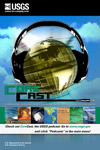USGS CoreCast
It's natural science from the inside out.
USGS Podcasts Home > CoreCast Home Page
Can't see Flash? Install Flash Player.
Next page
|
78
|

Safe drinking water supplies are critical to maintaining and preserving public health. But how healthy is that resource? A recent USGS study found low levels of man-made chemicals in water entering and leaving drinking water treatment plants. USGS lead scientist Greg Delzer explains the findings of this study. (7:42) | Transcript/Links | |
|
61
|
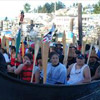
The USGS and the Coast Salish Tribal Nation have partnered during the annual Tribal Canoe Journey to study and help improve resources of the Salish Sea. This final episode in the Corecast Tribal Journey gives an overview of the journey, including a look at preliminary results and additional short video clips and commentary as they paddle through the San Juan Islands and British Columbia (in the Transcript section). Play Video: (downloading may take some time due to file sizes) (6:41) | Transcript/Links | |
|
54
|

Millions of pounds of lead used in hunting, fishing, and shooting sports wind up in the environment each year and can threaten or kill wildlife, according to a new scientific report. Sarah Gerould, head of the USGS's Contaminant Biology Program, talks with Dr. Barnett Ratter, a USGS scientist at the Patuxent Wildlife Research Center and a co-author of the new report, about the ways lead is affecting wildlife and their habitats. This episode includes images and video. Play Video: (downloading may take some time due to file sizes) (11:25) | Transcript/Links | |
|
52
|

Water quality in the Salish Sea will be measured during the Coast Salish annual summer canoe voyage, the Tribal Journey. This project will blend traditional knowledge of the Coast Salish People with USGS science in an effort to help improve management of ancestral waters experiencing environmental decline. (7:01) | Transcript/Links | |
|
49
|
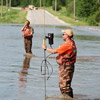
Heavy rainfall across the Midwest has caused major flooding. USGS National Flood Specialist Bob Holmes gives us the latest information on the rising rivers and what the USGS is doing to respond. (5:22) | Transcript/Links | |
|
40
|

The Senate is holding a hearing on pharmaceuticals in water, and the USGS is supplying information. Herb Buxton, USGS Toxic Substances Hydrology Program Coordinator, fills us in on related research and findings.
(9:03) | Transcript/Links | |
|
37
|
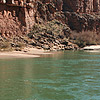
In this video podcast, USGS experts give preliminary observations on what took place during the high flow experiment. Time lapse videos and photos available. Play Video: (downloading may take some time due to file sizes) (8:23) | Transcript/Links | |
|
30
|

Dams don't help just by holding water back. By opening Glen Canyon Dam's jet tubes for a high flow experiment—scheduled to take place on March 5—scientists can study and improve resources in Grand Canyon National Park. Learn more by listening to our interview with John Hamill, USGS Grand Canyon Monitoring and Research Program Chief. Go to the bottom of the "Show Details" to see an amazing high-res image of Glen Canyon Dam releasing water. (12:55) | Transcript/Links | |
|
27
|

USGS hydrologist Richard Alexander talks about the nine States that contribute to the majority of nutrients in the northern Gulf of Mexico, threatening the economic and ecological health of one of the Nation's largest and most productive fisheries. (12:19) | Transcript/Links | |
|
26
|
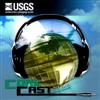
Three scientists talk about lesser-known topics that were brought to light in the media in 2007 by the USGS Science Picks, including the loss of coastal wetlands, leaping carp, and evolutionary teamwork. We also preview CoreFacts, the quick science Q & A we'll offer every weekday starting February 4th. Subscribe at www.usgs.gov.podcasts. (16:29) | Transcript/Links | |
Next page

